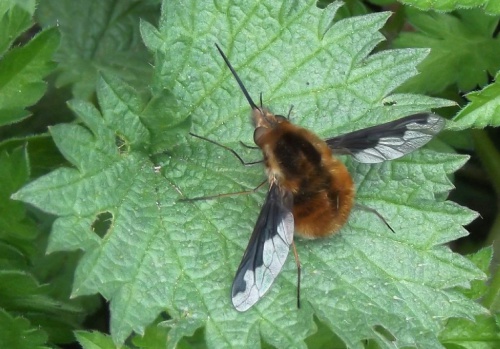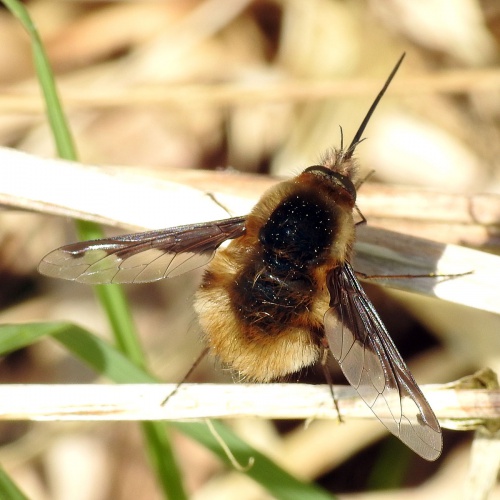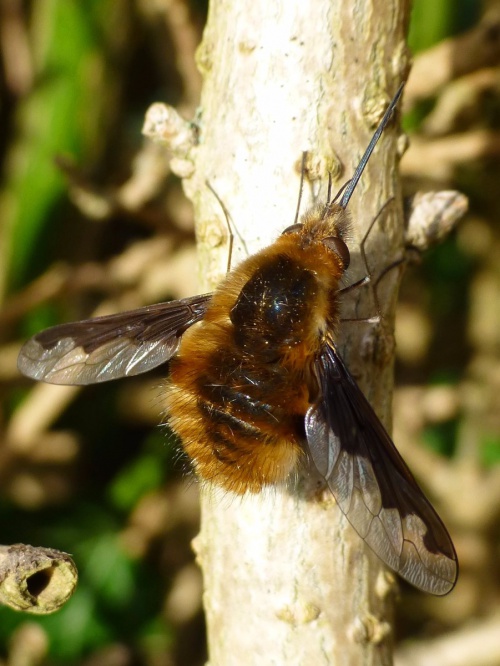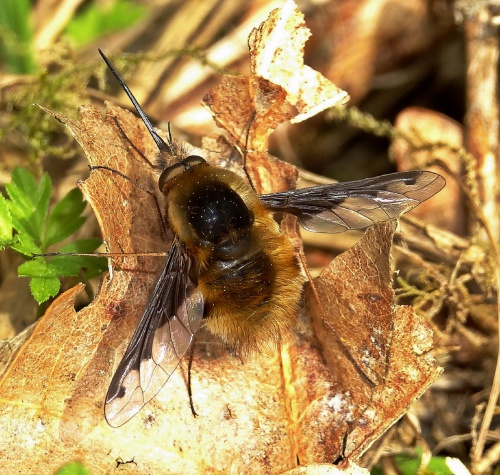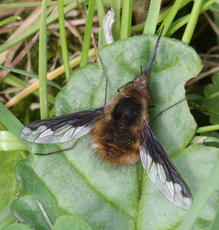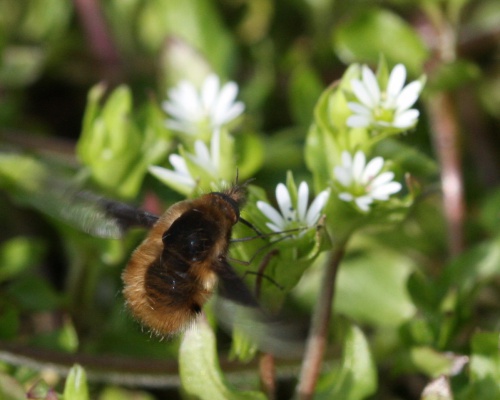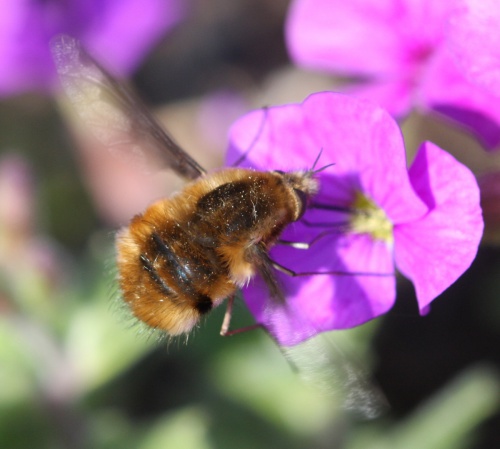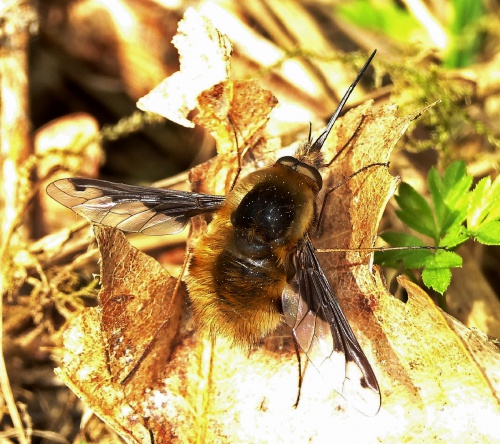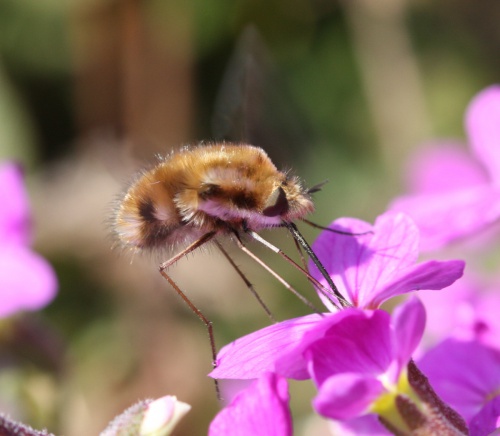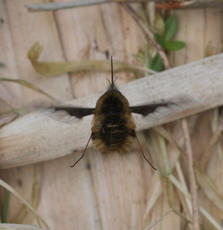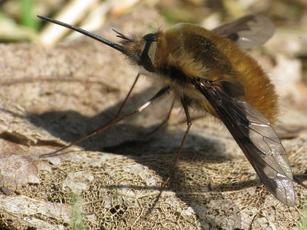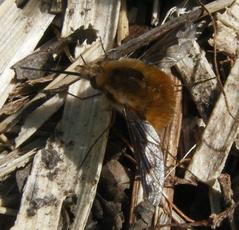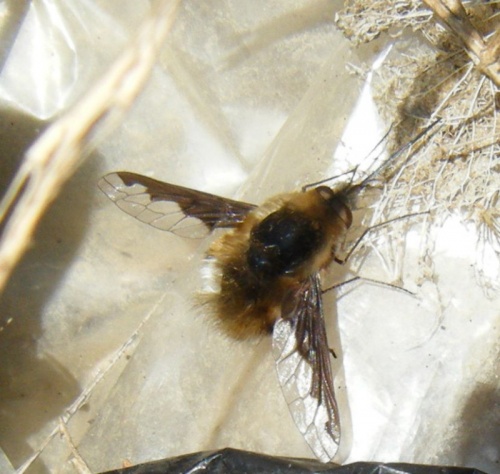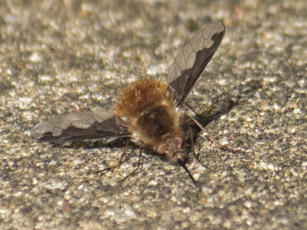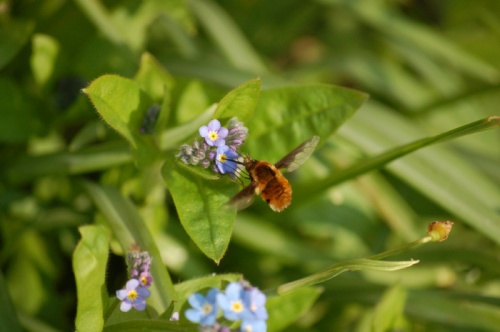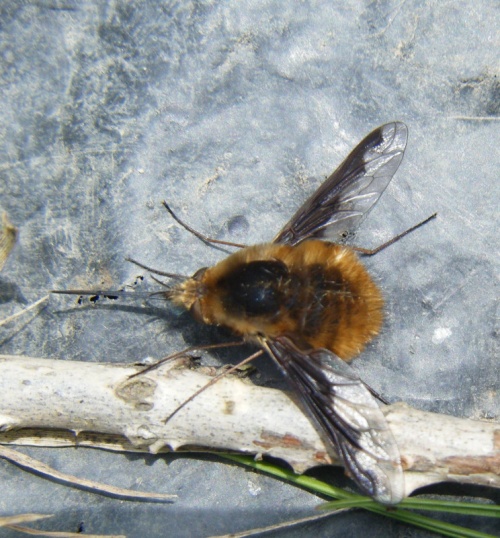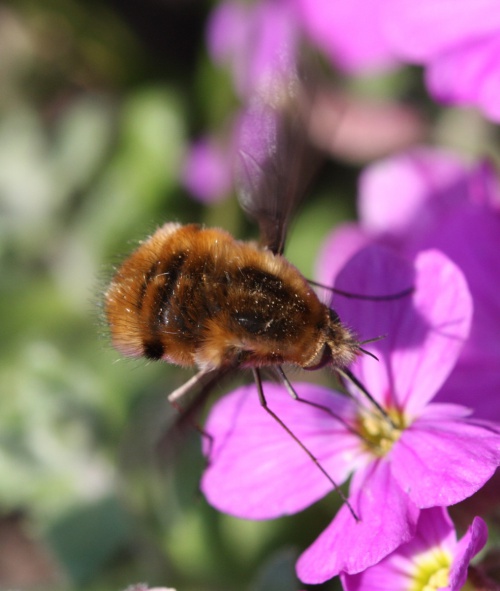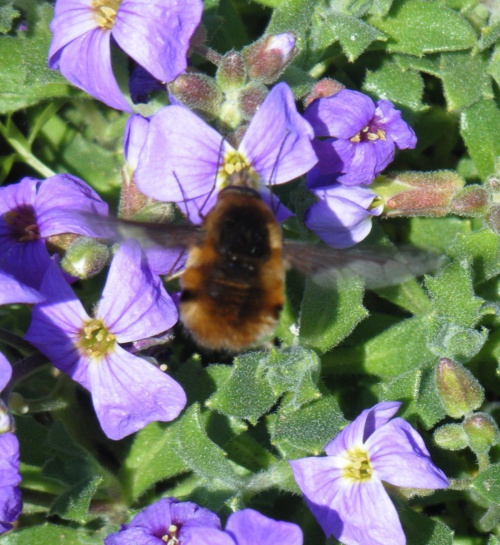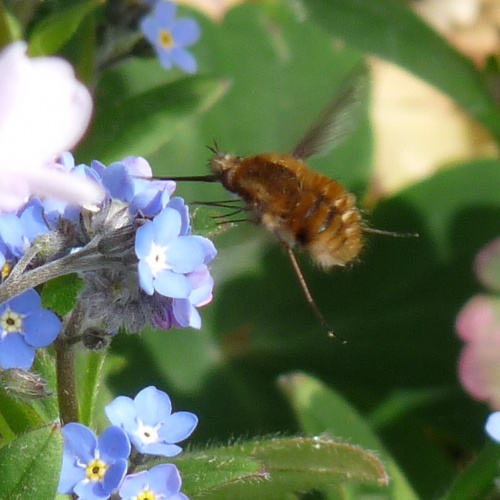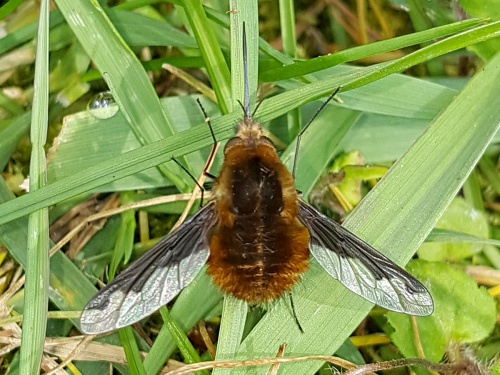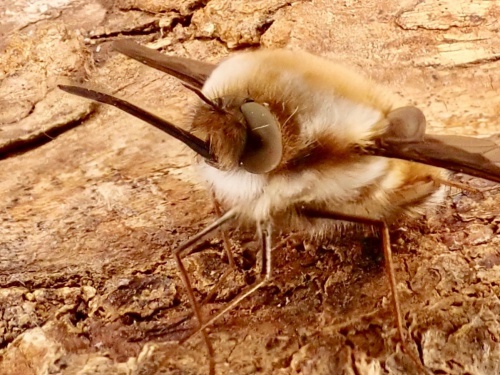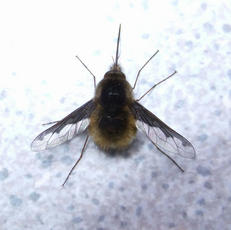Dark-edged Bee-fly - Bombylius major
Size up to 25mm with a hairy body resembling a bumblebee. The body is typically brown and relatively uniform in colour (c.f. Bombylius discolor). The wings are long and narrow, often held outstretched at rest, with a black front edge.
If you can observe the difference, please record whether the fly was male or female. Males' eyes touch on top of the head, females' eyes are widely separated. Males tend to peak two weeks in advance of females and it would be good to get more supporting data for this difference.
Gardens and hedgerows where it basks in sunny spots.
Spring.
The larvae are parasitic, typically preying on the larvae of solitary bees. The female lays her eggs near the nests of these bees, and the larvae then invade the nests to feed.
Common and widespread in Britain.
Common in Leicestershire and Rutland.
Dipterists Forum: Bee-flies in genus Bombylius: https://dipterists.org.uk/sites/default/files/pdf/Bombylius%20ID%20guide.pdf
Leicestershire & Rutland Map
Enter a town or village to see local records
MAP KEY:
Yellow squares = NBN records (all known data)
Coloured circles = NatureSpot records: 2025+ | 2020-2024 | pre-2020
UK Map
Species profile
- Common names
- Dark-edged Bee-fly, Bee Fly
- Species group:
- Flies
- Kingdom:
- Animalia
- Order:
- Diptera
- Family:
- Bombyliidae
- Records on NatureSpot:
- 681
- First record:
- 14/04/2007 (Semper, Alan)
- Last record:
- 22/05/2025 (Pochin, Christine)
Total records by month
% of records within its species group
10km squares with records
The latest images and records displayed below include those awaiting verification checks so we cannot guarantee that every identification is correct. Once accepted, the record displays a green tick.
In the Latest Records section, click on the header to sort A-Z, and again to sort Z-A. Use the header boxes to filter the list.


